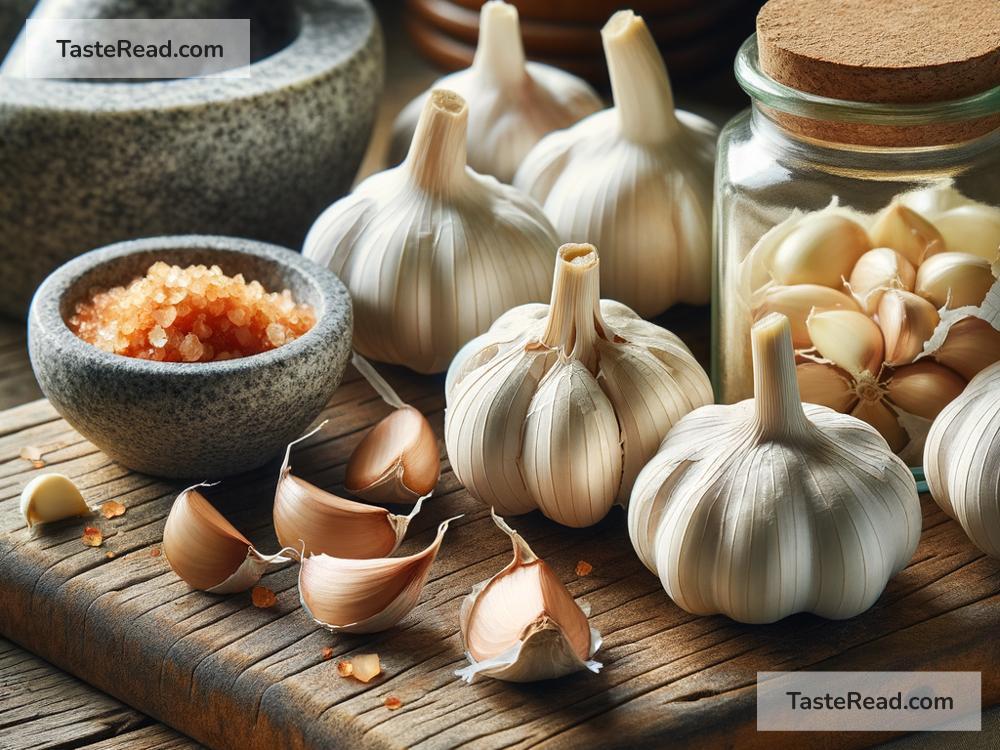Can Garlic Really Ward Off Illnesses? Let’s Find Out!
Garlic is one of the most popular ingredients in kitchens around the world. Whether you’re cooking pasta, soup, or stir-fry, garlic adds a flavorful kick to nearly any dish. But garlic isn’t just known for its taste—it’s also famous for its supposed health benefits. In folklore and traditional medicine, garlic has often been called a wonder food, capable of preventing illnesses and even warding off viruses. But how much of this is true? Can garlic really keep us healthy, or is it just a myth? Let’s dig into the science behind garlic’s reputation.
What’s Inside Garlic?
To understand why garlic is considered by many to be good for health, let’s look at what’s inside it. Garlic is packed with nutrients and important compounds. Just one clove of garlic contains vitamins and minerals like vitamin C, vitamin B6, manganese, and selenium. However, the real star of garlic is a compound called allicin.
Allicin is produced when garlic is chopped or crushed. This compound is believed to be responsible for garlic’s health benefits. It has antioxidant, antibacterial, and antifungal properties, which means it can fight harmful germs and protect your body from damage caused by toxins. Allicin also supports the immune system, which is why many people believe garlic can help prevent illnesses like colds and flu.
Garlic and the Immune System
Your immune system is your body’s defense against infections and illnesses. You’ve probably heard people say that garlic is a natural immune booster, and there’s some science to back this up. Studies suggest that garlic can help your immune system function better, making it easier to fight off germs that cause sickness.
For example, a study published in the journal Advances in Therapy found that people who took garlic supplements daily were less likely to catch a cold than those who didn’t. Even if they did get sick, their symptoms lasted a shorter amount of time. Researchers think garlic’s immune-boosting effects come from its ability to increase the number of white blood cells in the body, which are responsible for fighting infections.
Does this mean garlic will make you immune to illness? Not quite. While garlic can support your immune system, it’s not a magic cure-all. Eating garlic won’t make you invincible against colds, flu, or other diseases. But it can help your body stay strong and better prepared to fight illness.
Garlic as a Natural Antibiotic
Garlic has long been used in traditional medicine as a natural antibiotic. Ancient civilizations, like the Egyptians and Greeks, used garlic to treat infected wounds and diseases. Modern research has confirmed that garlic does have antibacterial properties. Garlic can kill harmful bacteria like Escherichia coli (E. coli) and Staphylococcus aureus, which can cause infections in humans.
However, garlic’s antibacterial effects are mild compared to antibiotics prescribed by doctors. If you’re dealing with a serious bacterial infection, garlic alone won’t be enough to cure it, and you should always consult a healthcare professional. That said, adding garlic to your diet can help protect your gut health and prevent minor issues caused by bacteria.
Garlic and Heart Health
Besides fighting illnesses, garlic is also believed to protect your heart. Research shows that garlic can lower blood pressure and reduce cholesterol levels, two major risk factors for heart disease. Studies suggest that consuming fresh garlic or garlic supplements can relax blood vessels and improve blood flow, which helps keep your heart healthy.
Garlic is full of antioxidants, which fight free radicals—unstable molecules in the body that can damage your cells and lead to chronic illnesses like heart disease. By reducing oxidative stress in the body, garlic may lower your chances of developing heart-related problems over time.
The Limitations of Garlic
It’s clear that garlic has health benefits, but it’s important to keep realistic expectations. Garlic is not a miracle cure. It can help reduce your risk of illness and support your body’s natural defenses, but eating garlic won’t guarantee you’ll never get sick. Health experts agree that a balanced diet, regular exercise, stress management, and good hygiene are far more effective ways to stay healthy.
Another point to consider is that garlic’s health benefits depend on how it’s prepared and consumed. Cooking garlic at high heat or boiling it for a long time can reduce the amount of allicin it contains, which might lower its effectiveness. To get the maximum benefits, try eating raw or lightly cooked garlic.
Garlic supplements are also available for people who don’t enjoy the taste or smell of fresh garlic. However, you should always talk to your doctor before taking supplements, as they may not be suitable for everyone.
Final Thoughts: A Helpful Food, Not a Magic Pill
So, can garlic really ward off illnesses? The answer is yes—kind of. Garlic is packed with nutrients and powerful compounds like allicin that can boost your immune system, protect your heart, and fight off harmful germs. While it’s not a miracle solution, adding garlic to your diet is a healthy choice that can benefit your overall well-being.
Keep in mind that garlic works best as part of a balanced lifestyle. Pair it with nutritious foods, regular exercise, and good health habits to stay strong and fight illnesses effectively. Whether you love it roasted in your meals, blended into dips, or eaten raw (if you’re brave!), garlic is a flavorful and affordable way to support your health. So go ahead—add a little extra garlic to your next meal and enjoy both the taste and health benefits of this amazing ingredient!


